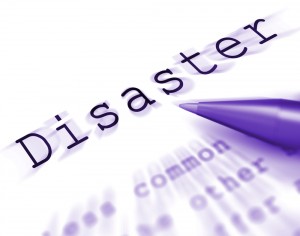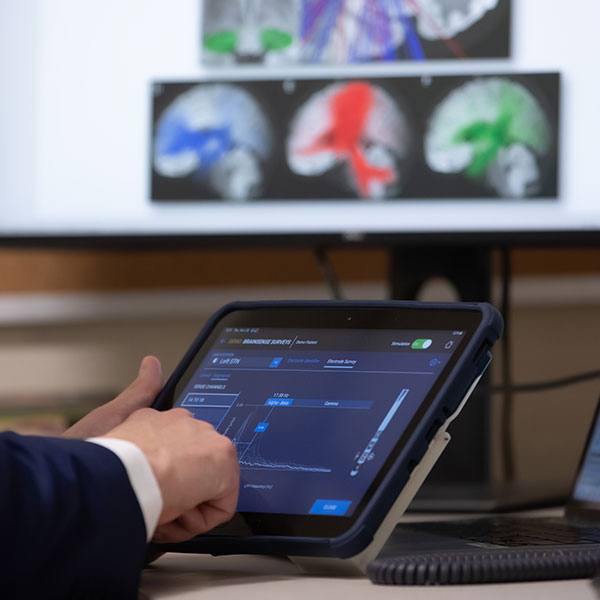-

Mayo Clinic Researcher: Personal Resiliency Paramount for Future Disasters
 ROCHESTER, Minn. — A Mayo Clinic researcher says individuals need to build disaster readiness and resiliency in order to better recover from the effects of earthquakes, tsunamis, hurricanes, tornadoes, wildfires and other natural disasters. Those who prepare well for disasters are more likely to have a sense of spiritual and emotional well-being and be satisfied with their life. Those findings appear in the journal Health and Quality of Life Outcomes.
ROCHESTER, Minn. — A Mayo Clinic researcher says individuals need to build disaster readiness and resiliency in order to better recover from the effects of earthquakes, tsunamis, hurricanes, tornadoes, wildfires and other natural disasters. Those who prepare well for disasters are more likely to have a sense of spiritual and emotional well-being and be satisfied with their life. Those findings appear in the journal Health and Quality of Life Outcomes.
Health scientist and geologist Monica Gowan, Ph.D., says how well people are prepared for adversity through the presence of meaning and purpose in their lives can play a positive role in how well they manage the uncertainties of disaster risk and recover from devastating experiences to regain health and quality of life.
“Even prior to the 2010–2014 New Zealand earthquakes and 2011 Japan tsunami, we recognized a need to explore how well-being was related to evacuation preparedness for future earthquake and tsunami disasters, Our findings are now relevant to any disaster experience, whether it’s an earthquake or tsunami in the Pacific or a tornado in the American Midwest,” says Dr. Gowan. She says if someone consciously cares about his or her well-being and that of others, and is aware and engaged enough to act on that basis, they have a stronger chance of being better off. She and her colleagues say this is the first scientific study of personal resilience and evacuation readiness prior to large disasters.
How to be resilient
- Decide you care enough to act. Your sense of personal agency, your desire to make choices and act, will be one of your greatest health assets.
- Know your resources. What are your greatest strengths? Physically? Mentally? Emotionally? Socially? Spiritually? Identify what you can do well and what helps you be well, and tuck this information in your mental “resilience toolkit.”
- Optimize what you have. Creatively think about how, by combining two or more of your top resources or strengths, you can uncover new solutions to challenges.
- Imagine yourself acting. How might you respond when you’re in crisis? Make a plan for how you can keep growing your resources and how you can deploy them in emergencies.
- Know your evacuation needs. If you had to flee or be displaced from home, what would be most essential for you? All disasters are local — find out what your community recommends for an evacuation plan and go-kit. Then check your checklist and kit too.
- Just Do It. Act on your plans and communicate them to others.
- Let nature be natural. If the cause is natural, then nature is doing what nature does. Protect yourself and remember that everything is temporary.
“Along with the robust survey findings we obtained from our random sample of 695 adults, many people in the study shared anecdotes about why they were preparing for disaster,” says Dr. Gowan. “Profoundly personal reasons were a common theme, whether due to their own vulnerabilities and desire to survive, to concern for a loved one, being part of a community, or wanting to serve some other greater good or higher purpose. A number had survived a prior disaster, with experiences ranging from the Holocaust to 9/11, and nearly every type of natural disaster. They all seemed to have found meaningful ways to transcend their unthinkable experiences.”
The researchers say the study has far-reaching implications. Growing populations and global travel make everyone vulnerable to disaster, and so the need for resilience is universal.
Co-authors of the study include Ray Kirk, Ph.D., University of Canterbury, Christchurch, New Zealand; and Jeff Sloan, Ph.D., Mayo Clinic. The research was funded by the University of Canterbury International Doctoral Scholarship, University of Canterbury College of Education and School of Health Sciences; GNS Science/Massey University Joint Centre for Disaster Research; New Zealand Earthquake Commission; Education New Zealand; and Mayo Clinic.
###
About Mayo Clinic
Recognizing 150 years of serving humanity in 2014, Mayo Clinic is a nonprofit worldwide leader in medical care, research and education for people from all walks of life. For more information, visit 150years.mayoclinic.org, www.mayoclinic.org and newsnetwork.mayoclinic.org.
MEDIA CONTACT:
Robert Nellis, Mayo Clinic Public Affairs, 507-284-5005, newsbureau@mayo.edu
Related Articles







